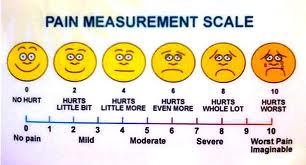Last week at the library, I picked up a book from a display set up for Veteran’s Day. Soul Repair: Recovering from Moral Injury after War by Rita Nakashima Brock and Gabriella Lettini. The authors, themselves having lived with the consequences of living with family affected by war, wrote this insightful book on the damage done to hearts and souls in war.
Moral injury after war – not PTSD, something else – a “…deep-seated sense of transgression (that) includes feelings of shame, grief, meaninglessness, and remorse from having violated core moral beliefs.” Invisible to rest of us, the conscience of a returning soldier can create havoc on the lives of these men and women — and those who love them — forever. I am sure that just such damage was done to my husband.
Think about it: we raise our children with certain basic moral lessons, then we send them off to war where they experience, witness and sometimes do, terrible things. Their stories may be so awful, they feel they can never tell those of us at home, instead living in silent shame with terrible torment.
This was the case for my husband who joined the British military at 17 – the age my daughter is now. He was a soldier in Northern Ireland and also sent off on furtive missions in Africa that his government would never claim. I remember being woken up by his nightmares of violence. He was vague about what he’d done, as soldiers usually are, and I didn’t press him for details, not really wanting to know.
The following passages captured what I think my husband struggled with, suggesting possible answers to questions still with me since his suicide:
“The consequences of violating one’s conscience, even if the act was unavoidable or seemed right at the time, can be devastating. Responses include overwhelming depression, guilt, and self-medication through alcohol or drugs. Moral injury can lead veterans to feeling of worthlessness, remorse, and despair; they may feel as if they lost their souls in combat and are no longer who they were. Connecting emotionally to others becomes impossible for those trapped inside the walls of such feelings. When the consequences become overwhelming, the only relief may seem to be to leave this life behind.
The tired truism, “war is hell,” is also true of its aftermath, but the aftermath can be endless. War has a goal and tours of duty that end; its torments are intense and devastating, but they are not perpetual. War offers moral shields of honor and courage. Its camaraderie bonds warriors together around a common purpose and extreme danger. War offers service to a a larger cause; it stumbles on despair. On the other hand, moral injury feeds on despair. When the narcotic emotional intensity and tight camaraderie of war are gone, withdrawal can be intense. As memory and reflection deepen, negative self-judgements and torment a soul for a lifetime. Moral injury destroys meaning and forsakes noble cause. It sinks warriors into states of silent, solitary suffering, where bonds of intimacy and care seem impossible. Its torments to the soul can make death a mercy.”
Little attention is ever paid to the injury done to the conscience, the soul — at least in our society. As number of veteran suicides continues to climb, it is past time for us to do so.

















